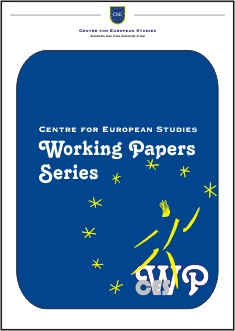THE RECONFIGURATION OF THE CONTEMPORARY WORLD ECONOMIC ORDER. DETERMINING THE POSITION OF THE EUROPEAN UNION WITHIN THE HIERARCHY OF POWER CENTRES
THE RECONFIGURATION OF THE CONTEMPORARY WORLD ECONOMIC ORDER. DETERMINING THE POSITION OF THE EUROPEAN UNION WITHIN THE HIERARCHY OF POWER CENTRES
Author(s): Larisa LuchianSubject(s): Politics / Political Sciences
Published by: Editura Universităţii »Alexandru Ioan Cuza« din Iaşi
Keywords: power centre; integration; economic order; global force.
Summary/Abstract: The hereby study offers an ensemble image upon the effects of the contemporary economic order and reconfiguration of the European Union. In this light, we wish to stress the main tendencies of the current world conjunction, the economic, politic and geostrategic opportunities and challenges, as well as the factors that contributed to the affirmation of the European Union on the global economic scene. In order to determine the position that European Union occupies in the hierarchy of the power centres, we analysed the main indexes of economic growth, the impact of politics and reforms upon the integration process, the effect of the global crises upon the European structure and the existent discrepancies between different regions of the European Union. The main conclusion drawn from this study is that, by aspiring to the status of a superpower and trying to affirm itself as an economic and politic individuality, able to sustain its own visions and protects its own interests, the European Union should aim to become a political global force. However, it is hard to achieve that since the European Union lacks an internal cohesion and the required capabilities in order to develop a global policy.
Journal: CES Working Papers
- Issue Year: 7/2015
- Issue No: 2A
- Page Range: 519-530
- Page Count: 12

